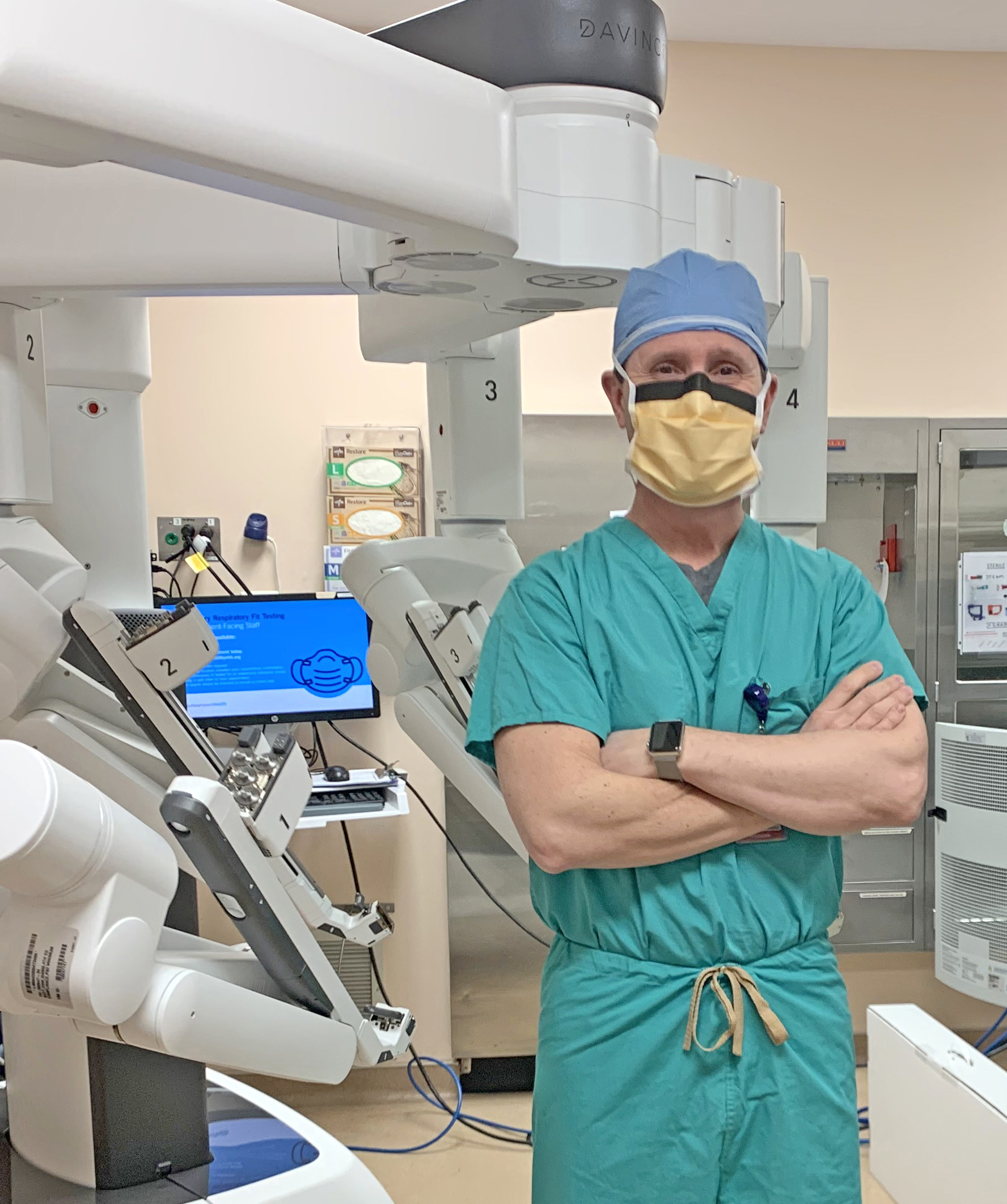Geoffrey Nadzam, MD, chair of Surgery at Lawrence + Memorial Hospital and an affiliated physician with Yale Medicine, says many people have misconceptions about what it means when someone is significantly overweight.
“There’s an assumption many of us make that it’s a lack of willpower or an inability to diet effectively, and that’s not true,” Dr. Nadzam explained. “Obesity is a disease. There are changes in someone’s body composition – their physiology – that predispose many individuals to continue to be overweight, and that includes people who have tried hard to find solutions. For some, bariatric surgery is an option that can break the cycle and fix that physiology.”
At Lawrence + Memorial Hospital, and throughout Yale New Haven Health System, patients have access to comprehensive support services to help them meet their weight loss goals through the Center for Weight Management. By bringing together experts in the field of medical and surgical weight-loss, endocrinology, behavioral health, nutrition and exercise physiology patients have more successful outcomes.
“It’s far more holistic than simply scheduling someone for an operation,” Dr. Nadzam said. “It begins with an analysis of each patient’s lifestyle and contributing medical conditions that may need to be addressed prior to surgery. Each patient in our bariatric program is guided by a team that includes medicine, nursing, nutrition, psychology and surgery.”

Geoffrey Nadzam, MD
More specifically, doctors will analyze each patient’s body mass index to determine if they are appropriate candidates for surgery, and they will review and address all accompanying health issues, with some of the most common conditions being diabetes, high blood pressure and obstructive sleep apnea.
.
“Our bariatric program is different,” Dr. Nadzam said. “It’s extremely thorough, and we expect patients to demonstrate an ability to lose weight and to develop healthier lifestyle habits long before we ever get to the operating room. By taking this approach, we find that, when it’s time for a procedure, each patient’s chance of a successful outcome and a long-term life-changing benefit is statistically significant.”
Types of weight loss surgery
Yale New Haven Health offers minimally invasive bariatric surgery options that include laparoscopic sleeve gastrectomy and Roux-en-Y gastric bypass.
“Both of the main types of bariatric surgery that we perform in our health system are minimally invasive,” Dr. Nadzam said. “Both alter the anatomy inside the stomach and intestines in order to produce weight loss and an inability to eat large portions.”
The best part of Dr. Nadzam’s job, he said, is seeing the positive lifestyle changes in patients he has treated for weight loss. “After bariatric surgery, patients lose weight very rapidly, so they’re able to do more activities and they’re more excited about doing those activities,” he said.
“We tend to see higher energy levels after surgery, and that’s the best part of my job,” Dr. Nadzam added. “It’s the satisfaction of seeing patients very encouraged afterwards, realizing that they’ve made the right decision to change their life for the long-term.”
Wondering if bariatric surgery is right for you or a loved one? You can register for one of our free, online webinars led by one of our bariatric surgeons (available in English and Spanish).

.ashx?h=800&iar=0&w=1200&hash=84B2257B89BFF09A28FC14CFF8C6B437)



